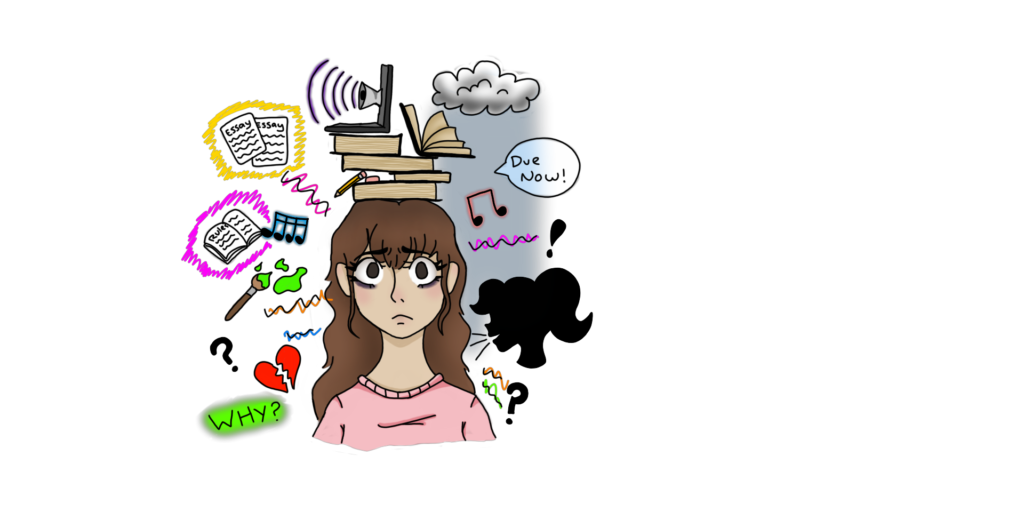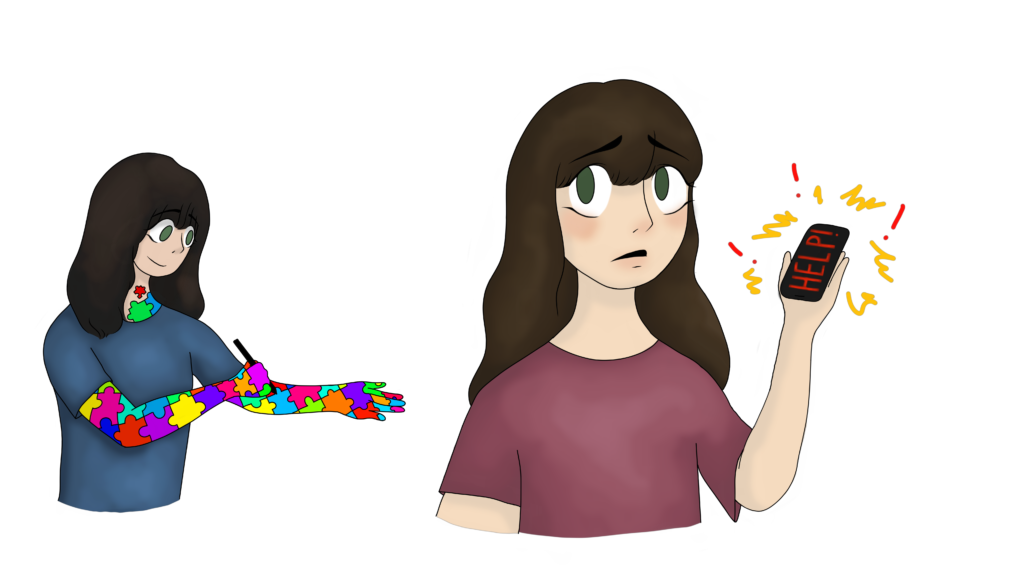{11¾min read}
SELF CARE pt.I
In life, We can only give so much.
Once those energy reserves are gone, once the food is all digested, when 3pm hits and the coffee’s worn off …
Sometimes there is just nothing left to give!
This can lead to relationship damaging comments (or worse, out bursts).
Building walls between ourselves and the children we haven’t seen all day.
If life as a Youth Worker taught me anything, it was how to simply survive… in healthy and unhealthy ways. There is only so much coffee, fast food and alcohol can achieve. Eventually it’s time to take care of ourselves. But that can be scary! Where do we start? What if we look inside and it’s all too much? What does it say about me if I’m not all together?
I’ve got one… What does it mean to be human ?
I like to think we are a responsible agent.
Responsible for Our Bodies.
Responsible to Our Families.
Responsible for Society.
Whatever happens around us is our own creation. Emanating from our choices and actions, positive and negative. And if we don’t take care of ourselves, we can’t make the best future for our little ones.
Here’s some of the ways I’ve found to just keep treading water, and eventually to rise above some of life’s storms:
DON’T LET YOUR CHILDREN DO ANYTHING THAT ANNOYS YOU (Jordan Peterson)
– don’t get angry
When was the last time that someone was mad at you?
. . . How did it feel?
What did it look like?
Did they make themselves smaller or larger?
… did they APPEAR larger or smaller?
Children are small strange creatures. They have strong feelings, immature opinions and faces that can crack some of the hardest men. We, on the other hand… are rougher, larger, life worn monsters compared to these 3 foot tall angels…
Simply our size can make children extremely uncomfortable. It would be like having an argument with a 12 foot tall football player, not fun!
Like an angry teacher, the smallest offence that we hold on to as parents can have devastating effects.
The ice cream that was stolen last week means nothing, but remembering it for the next month and cutting your child off when they talk about ice-cream is not proportionate to the “crime.” That is emotional abuse. And to some degree, through natural passive aggression, we MUST all do it. Whatever the meaningless trigger was. Some of us have decades of these types of interactions saved away. What if there was a way to USE this hidden hurt?
If we can train ourselves to be aware of our inner feelings, we can keep calm in almost any situation. It’s a choice to let those feelings come flying out.
Focus the grievances into the energy to craft a plan. Use it to plot and plan, not to explode and destroy relationships (relationships are the easiest way to change behaviour… You will need that later 😉 )
And Bonus, By saving our expressions of anger for extreme situations we allow ourselves to breath and have space, and for our anger expressions to have an important (and much needed!) impact!

The best longer term strategy I have found to control myself, is to change the day to day behaviours that frustrate me.
For me a big thing was chewing. Loud obnoxious chewing just gets to me.
For a while I tried to ignore it, but I could feel the frustration rising…
– notice the things that bother you
We need to be real… There are some things that people around us do that just get to us…
If we allow these “little” things to continue, our good will for our child begins to wane, to disappear entirely at times!
With a careful approach confronting these things can be the best option!
Completely ripping off Jordan Peterson, “Don’t Let Your Children Do Anything That Annoys You”.
Our Children are looking for… Feeding off of our emotions.
When ever we are in a heightened state (happy, sad, angry, whatever), so are they…
Even worse… At times we can cut their world into pieces and demoralise them with an innocent whisper.
Hearing Jordan Peterson speak about his discipline style turned this around for me!
When his son was younger he was a strong willed individual.
To discipline the child Dr Peterson would place him on the step, sit with him, and have him wait until Peterson wasn’t bothered by the child any longer.
This did two things. It showed the child that there was a boundary, and that it had been crossed (while also teaching a life lesson in self control). At the same time it allowed Jordan Peterson to move past his feelings, processing the negative feelings the original behaviour had brought to the surface.
Now the child and the parent can reconnect, moving on together.
How genius!
… How time consuming!…
How worth it !!!
By calling out behaviour that bothers us, we can keep the good will toward our children… and push off our felt frustrations. But how far is too far? When are we just nit picking? How can we control ourselves if we start this kind of thinking?
– Speak openly about them
We should be allowing our children to know what it is that bothers us.
At some point in the future they will be living out in the wild. Society doesn’t care that you are comfortable eating with your mouth open, some people hate that. Society doesn’t care that you have motor mouth and cut everyone off, you seem rude and stuck up. Society doesn’t think you should always get what you want, people get hurt for that.
We have the opportunity, no…the responsibility to teach them the game of life!
By speaking with our children about the things bothering us we can internally gauge what is valid.
If we don’t feel quite “right” mentioning something (or after we do ! :\ 😐 ), maybe we need to go and reflect on ourselves again. We might be letting our bias or selfishness show through.
NUMBER ONE RULE. Do not be angry when you share these things. If you begin to feel that rising up, bail! Run! Get Out!!! (if it’s sadness, real crying in front of our children is powerful)
Once you have said what you need to and explained why this behaviour has to stop, allow space.
Give your child time to think, to process.
Give yourself at least a few seconds to compose yourself again,
then explain the expected behaviour and possible consequences.
Now, give your child time to talk with you about this new information. Give them the respect and dignity to open their hearts, to share with you.
If they bring up a valid complaint or a suggestion, consider it, talk it through, explain the consequences if you tried the suggestion, maybe even find a compromise.
By involving our children in this process there are less surprises for everyone.
We can almost ensure that these changes will be a success. And it sounds kind of crazy… At this stage we should take some time to further think through how the consequences will work moving forward.
– Discuss possible consequences
Every action in life has at least three types of consequences attached to it:
Natural consequences : Gravity. If you stop pedalling, the bike falls
Earned consequences : When the bike falls, you probably hit the ground
Unintended consequences : When you hit the ground, you could be injured.
These different levels are what We have already dealt with as we naturally move along.
We have identified areas that annoy us, and as a parent being annoyed with our child means it’s harder to let things go (natural consequence). So, we have began to eliminate the behaviour bothering us (earned consequence), so that we keep an open and healthy relationship with our child (unintended consequence).
To explain it another way an earned consequences are the outcomes we bring upon ourselves, natural consequences are outcomes we may have even seen coming that are out of our control, finally unintended consequences are outcomes we didn’t have all of the information for.
Now THAT is where we are helping our children. We are preparing them to seek out as much information as possible, so that they can make the best decisions when it counts!
With great care we can begin to explain these ideas when we feel they are able to understand. If we begin to explain something and it is clear that they don’t quite understand it is fine to leave it for a later time. There may be a more important lesson to learn before thinking through consequences.
What is important is to explain the consequences that we will be delivering.
Earlier bedtime, less tv time, phone ban, app blocks… whatever the punishment is to be, it must be clear, I recommend writing it down, and it must be something you can consistently do. Unfortunately… sometimes consistently means for weeks at a time.
This does bring us to a secret weapon for consequences / punishments… The power of “well this sucks.”
Because it does !
We don’t like seeing our children miss out. We don’t like missing out. We don’t like feeling mean or strict or tough. So why not share that?!
Actually, recently with my step daughter we were getting the silent treatment. Closed doors, distance, avoidance, grunts, low speaking voice… the typical moody teenager combo!
She had been warned about using her phone in class the previous week, and had continued. I had seen it used in class again again, which is the deal we have. The phone isn’t locked at school, as long as she uses it appropriately when not in class.
After another morning of ignorance I sat her down on the couch and explained that I had to lock her phone. I told her that I hated doing it, that it doesn’t feel nice, in fact feels kind of mean. I explained that she needs to keep her agreements and she will be completely fine…
Within 2 minutes she was talkative and bubbly, and it continued for a few days like that.
Being open and honest, having systems that you can blame… it saves relationship and makes life easier! Why not set yourself up for positive surprise consequences just like that?!
This all bring us to decision time : How will WE set boundaries?
– SET THE BOUNDARY, HOLD THE LINE.

Everyone playing along at home has at this point
– Controlled their reactions
– Zeroed in on frustrations
– Spoken openly with their child about at least one frustration
– Talked through possible consequences, then taken some time to think.
Again, we get to spend just a liiitle more time. Now we should talk with co-parents. Partners, grandparents, carers, babysitters, the neighbour that watches the kids on Thursday. ANYONE that is involved in raising our children should have a chance to at least hear our plans.
Soometimes this may not be possible. The other person could be aggressive, manipulative, or just not care. They also could be the kind of person to actively use your openness against you. Be smart and protect yourself, but I challenge you to put your true self out there as much as possible for your child. It models competence and may just help to teach your child conflict resolution if done well!
The biggest advantage to sharing your plans with others is differing perspectives. We can’t all know everything, so the more brain power we can channel into any given situation the greater chance of success.
With the foundation laid it’s time to step up with some new boundaries.
Once set these boundaries will almost automatically guide and teach our children, while forcing us to be present and there for them.
It could be no tv before 10 am
It could be no sugar after dinner
It could be homework start straight after school…
Whatever the boundaries are, permissive or dissuasive , they MUST be held consistently.
As parents and carers every time we say something we must deliver. To not is to risk losing the respect we have gained. By being consistent we are proving our reliability.
To look at it another way, we all want to know what to expect. Even our bodies want homeostasis!
By having consistent behaviour and responses with our children we are giving them the best possible environment to learn and grow. Much like a scientists lab is kept clean and organized, by keeping the home similar our young ones can explore and experiment in a safer environment. Training in safety for the unpredictable world outside.
The best boundaries are ones that can be moved as our child progresses. They don’t need to be completely set in stone, but once said to the child they must be followed for a few days before changing (…at least!). In a number of environments I have seen the effect of inconsistent boundaries. With boundaries changing every few days (through either active removal by the parent, or by lack of enforcement) the child is taught that what Insert Name Here says doesn’t matter. (and then we wonder why the children never listen to us…)
In any form of partnership this is even more important! If one partner is holding the line and the other is dropping the expectations all of the time, the children become confused and find themselves in a perfect position to play the adults against each other.
DECIDE ON AN ACTION.
STATE THE EXPECTATION.
CONTINUE TO ENFORCE.
FIN
By
– Controlling our emotions & reactions
– Removing our biggest frustrations
– Speaking openly with our children about our frustrations
– Talking through possible consequences,
– and creating expectations (That we actually enforce)
we can relieve some of the immediate pressure, get self reflective, and move on to taking care of ourselves in some deeper ways.
Part 2. HEALTH coming soon




